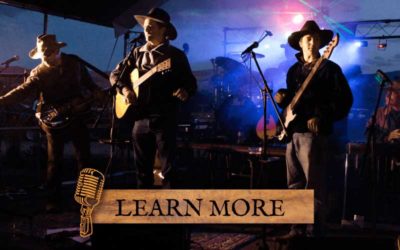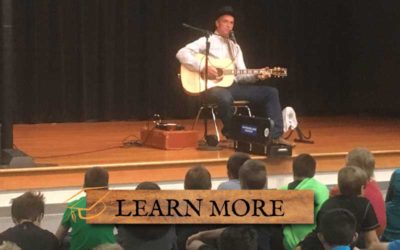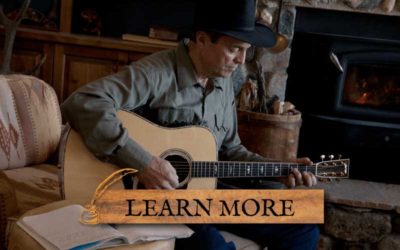El Grito is the Mexican shout, the high pitched cry that is released from an impassioned singer during an especially moving song. It originates from the pain that has been locked up inside of a free heart for too long; a pain that stems from working too much for too little in a place that is too far from one’s place of birth. El Grito is the temporary escape from the silent longing to change one’s current plight. It is all this. It is more than this.
He looked to be about 45 years old, but that’s always a tough call with a Latino. His hard lean body looked as if it had spent a lifetime obeying his silent orders to perform backbreaking work while his smooth dark skin wrapped him in a way that made it easy for me to err in my guess by 10 years on either side of middle age. Like most of the attendees, he was dressed in the best town clothes that he had: a clean 20 dollar shirt, a pair of polyester wranglers, shiny boots and a new out of style straw hat. He had been scrutinizing my guitar playing for the past half hour and what I had taken at first to be complimentary interest was now beginning to get on my nerves. I mean, this was a Cinco de Mayo celebration, not some sort of a contest. It was time for me to play and for him to have some fun, right?
To make matters worse, our music just wasn’t connecting with the audience. I had been hired to play this gig along with David, a musician friend of mine who was an accomplished push button accordion player. He was a master at playing different types of indigenous folk music and he knew what he was doing. We had a nice sound system so everyone could hear us. We were on an elevated stage where everyone could see us. We were authentic. We were in tune. We were not what these people needed.
A small group of listeners stood and watched politely as we ran through an upbeat ranchera song. These are songs that are customarily accompanied by dancing. No one was dancing. The empty authentic Holiday Inn fiesta atmosphere was beginning to get to me – I needed to take a break.
As soon as I began putting down my guitar two men approached and asked me if I would permit their friend to play. My partner David was now doubly insulted; not only was our music not working, but here was somebody who thought they could do a better job than we had been doing. He left the stage in search of something to eat and I found myself alone, together with these guys. I turned around and looked behind them and, sure enough, there he was, the man who had been watching me all afternoon. He was standing there, silently watching me, with upturned hopeful eyes and the light palms of his dark little hands facing the fluorescent sky overhead.
I had never let anyone play on this particular guitar. This wasn’t just a guitar. This was my Martin D-28 Custom guitar. It was a top notch dreadnought model and had monetary value. It had been given to me by my Dad and my wife and was an heirloom that had sentimental value. While sort of a persnickety instrument, if you treated it right, it produced a nice warm sound that sparkled around the edges; it had musical value. This was not a guitar that I let people play. I walked over to the little man and put it in to his hands.
Now it was my turn to stand and watch. He slung my oversized strap around his neck and hefted the big Martin up to his little body, creating a scene that looked comically out of place. Typically the small guitar of Mexico, the vihuela, is held high and close to the player’s heart. This guy was standing there with the oversized instrument hanging right where it fell from the long strap – slung low and on top of his hip, making him look like a mismatched Elvis impersonator.
His little hands began to make precursory explorations up and down the strings while he and the Martin introduced themselves to each other. The position of the guitar made it so hard for him to play that he was forced to sit on top of one of the folding tables and hold the instrument up in his lap. No challenge from this guy, I thought. Hell, he’s not even hitting all the strings and his stiff fingers are muffling his tone.
A woman whom I hadn’t noticed appeared by his side. She was dressed in the female version of his attire, with black polyester slacks, high heels, and a blouse full of fake desert flowers. I noticed her proud display of painted fingernails and costume jewelry as she placed her hand gently on top of the man’s leg. Then, as quickly as our show had ended, their show began. The little man started playing a rhythm on the big guitar in three quarter time while, around the edge of the chords, the woman began to sing.
It was immediately apparent that her voice was focused on one and only one thing–tearing out the inside of her heart to show to the outside world. I watched as she closed her eyes and I wondered about what she was looking at in the hidden world that only she could see. As she moved through her song of loss, I watched the sparkle of a real tear escape from the corner of her fake eyelashes. There, from a place where only she could go, a woman was singing for an audience with the pure joy of true sadness.
As she worked through her song I looked around and noticed that a crowd was gathering. Several couples were holding each other and beginning to dance, people were singing along, and the party was picking up. I turned back towards her as she started in on another number–this one a fast stepping corrido–while I thought about this clash between realities and how outsides and insides don’t always match up.
That’s when it happened: as she finished a verse, the little man made the only sound I had heard come from his mouth all afternoon. His head was thrown back and he was crying out for all that he was worth. The root of his cry was pain. The composition of his cry was El Grito.
I stood there, lost in the music, watching the unspoken play between these two performers until it came time for the fiesta to end and for us to head back home. I approached the little man in much the same way as he had approached me earlier in the afternoon – with my hands and my eyes facing up in the universal pose of appeal. He looked at me with a steady gaze of what I can only describe as an even mixture of deep sadness and fresh satisfaction, removed the Martin, and gently placed it in my open hands. Our silent gestures were easy for any observers to understand; we were now brothers in music. For the first time that day he gave me a smile.
On the drive back up to Sheridan, David bemoaned the fact that our authentic Latin music had been derailed by two unprofessional musicians. I sat next to him thinking other thoughts: how the genuine exterior of our music had been sidelined by the shallow soul that lie underneath it, how a true emotion had washed the makeup off of false eyes, and how a loud cry had escaped from the big heart of a quiet little man.
I had heard El Grito.



Leave a Reply